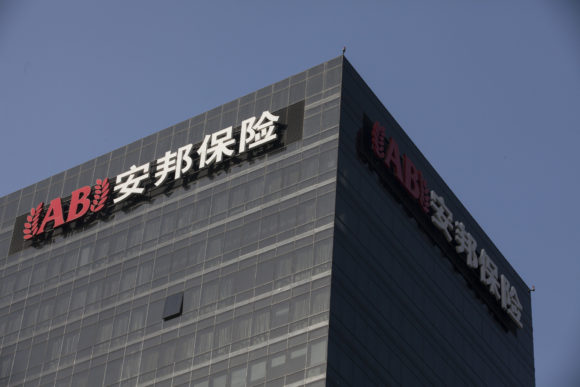The once-mighty Anbang Insurance Group Co. has been temporarily taken over by China’s regulators and its boss is facing prosecution on charges including fundraising fraud and embezzlement. Anbang’s meteoric rise was fueled by surging sales of high-yield products, which helped fund a dealmaking spree around the world. That funding model came to an abrupt halt in June, when Chairman Wu Xiaohui was detained by authorities amid an escalating crackdown on China’s biggest dealmakers.
- Is this a bailout by China’s government?
Not really. China will introduce private capital to restructure Anbang, which will remain closely held, according to regulators. That’s a very different model from the big government-led bailout of large state-owned Chinese banks more than a decade ago. Still, the government’s intervention will certainly bring relief to policyholders who bought Anbang’s products, lured by among the highest returns in the marketplace. It also lessens uncertainty hanging over listed Chinese companies that Anbang has large stakes in, including China Minsheng Banking Corp.
- Why now?
President Xi Jinping and his top economic deputies have vowed to make controlling financial risks their priority, a pledge renewed at the Communist Party’s twice-a-decade leadership congress in October. Regulators have been looking into Anbang for more than eight months, giving them enough time to get a picture of its complex finances. At the same time, Xi’s efforts to reshape the financial system have accelerated as he prepares to begin a second term as president at the National People’s Congress next month in Beijing. Top financial and economic officials are expected to be reshuffled by the rubber stamp legislature, which Bloomberg reported last month might also enact a merger of the banking and insurance regulators. The Anbang announcement comes just days before the ruling party was expected to meet behind closed doors to approve personnel appointments and government restructuring decisions, Bloomberg reported Thursday.
- What were the inherent challenges in Anbang’s business model?
Anbang’s dealmaking in recent years was helped in part by rising sales of investment-type products, many of which allowed holders to redeem in as little as two years with little or no penalties. That heightened liquidity risks and the potential for a duration mismatch between assets and liabilities for Anbang, whose investments included real estate investments that are often locked up for years. Anbang’s investments include New York’s Waldorf Astoria hotel, as well as Strategic Hotels & Resorts Inc., which it acquired from Blackstone Group in 2016. A 2017 Caixin article also raised questions around Anbang’s sources of capital, pointing to the discrepancy between Anbang’s registered capital — the largest of any insurer in China — and the company’s relatively low ranking in the insurance business.
- Is there any industry precedent for this?
While this isn’t the first time Chinese regulators have had to step in when an insurer ended up in trouble, it certainly dwarfs earlier interventions in scale and magnitude. In 2007, the government tapped an industry protection fund to take control of New China Life Insurance Co. by buying a major stake in the insurer, after its former chairman Guan Guoliang misused funds.
- What happens to the counter-parties of Anbang?
Creditors of Anbang, including banks and bondholders of its life unit, don’t necessarily have to panic for now as the government said its external liabilities won’t be affected by the takeover. Policyholders of Anbang’s insurance operations including life and property insurance might need to call another insurer for future payouts, as the government may ask other insurers to operate “all or parts” of Anbang’s business, according to some details sketched out in a government takeover plan.
- What does this mean for assets owned by Anbang?
Expect asset sales as “all or partial” sales of Anbang’s business, assets and liabilities are among possible measures to be taken by the takeover team. Blackstone Group is already said to be looking at some of Anbang’s property assets it sold to the Chinese insurer over the years. That also means companies that Anbang has bought shares in over the past few years, such as China Minsheng, may need to brace for reductions in Anbang’s shareholdings, although not necessarily in the open market.
Related:
Topics China
Was this article valuable?
Here are more articles you may enjoy.



 Experian Launches Insurance Marketplace App on ChatGPT
Experian Launches Insurance Marketplace App on ChatGPT  Florida Engineers: Winds Under 110 mph Simply Do Not Damage Concrete Tiles
Florida Engineers: Winds Under 110 mph Simply Do Not Damage Concrete Tiles  Munich Re Unit to Cut 1,000 Positions as AI Takes Over Jobs
Munich Re Unit to Cut 1,000 Positions as AI Takes Over Jobs  BMW Recalls Hundreds of Thousands of Cars Over Fire Risk
BMW Recalls Hundreds of Thousands of Cars Over Fire Risk 

